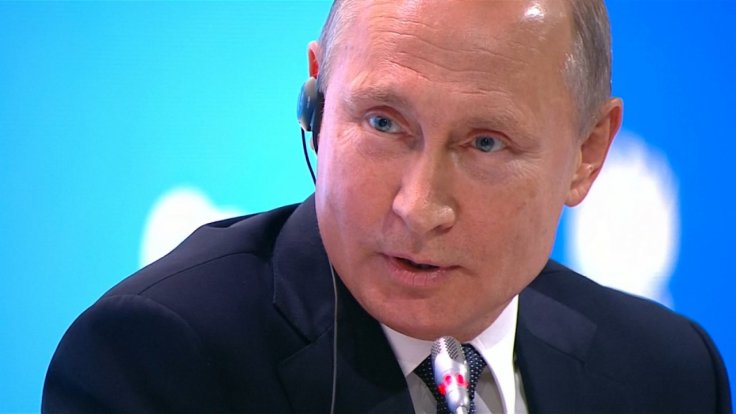The Russian President Vladimir Putin laid flowers at the Nevsky Pyatachok monument on Saturday to honour the heroes and all the victims of the Leningrad siege, which occurred 77 years ago during the Second World War, as per reports.
The Nevsky Pyatachok monument is a bridgehead located on the left bank of Neva River, is the place where nearly 60,000 Soviet soldiers died while trying to break the siege of Leningrad. Putin's father also named Vladimir, was one of the soldiers who fought against the German Nazis and received severe injuries to his leg.
Putin honoured the Leningrad siege victims

From Nevski Piatachok, located some 50 km southeast of St Petersburg, Putin travelled to the Piskarevskoye Cemetery where the remains of 420,000 inhabitants of Leningrad killed during the blockade and more than 70,000 Soviet soldiers are buried. In one of the mass graves of the memorial cemetery, Victor, Putin's elder brother who died at a young age during the German siege, is also buried.
The President placed a floral wreath before the Motherland monument, but before he stopped and left flowers next to the mass grave where Victor's remains lie.
Putin's brother was separated from his parents
Putin has said in the past that his brother was separated from his parents and taken to an orphanage by Soviet authorities to save him from the famine suffered by the inhabitants of Leningrad. The head of the Kremlin, who was born in the post-war period (1952), admitted he did not discover where Victor's remains were until 2014.
The Nazi Army, which invaded the Soviet Union on June 22, 1941, closed the siege around Leningrad on September 8 of the same year and held it for 871 days and nights. Soviet troops managed to break through on January 18, 1943, although they were unable to liberate the city in its entirety until January 27, 1944. During the Leningrad blockade, nearly 650,000 residents of St Petersburg died, almost entirely from hunger, and more than 300,000 Soviet soldiers.
(With agency inputs)









